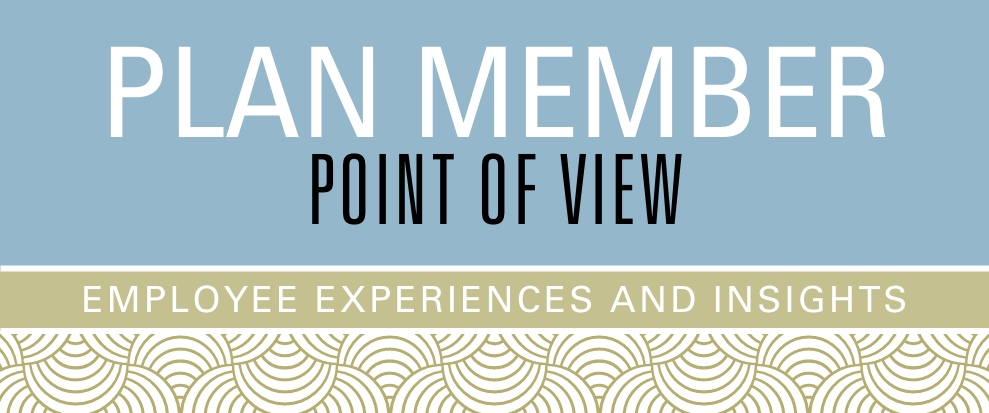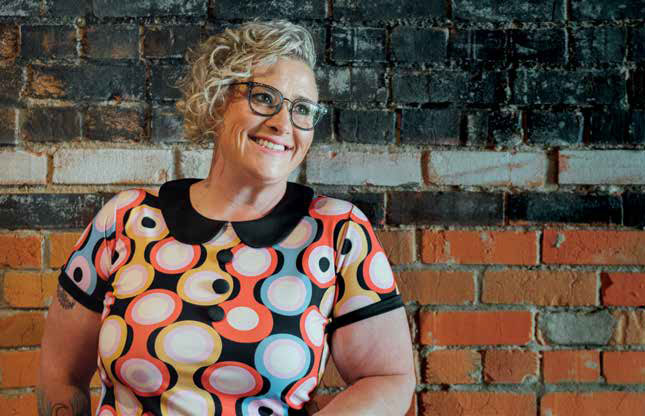

Kerry Rasmussen
Kerry Rasmussen tried two other type 2 diabetes medications before she found one that would work for her long-term. But convincing her benefits plan to cover the new drug was a challenge, and she wishes plan sponsors would look beyond the price tag and consider the cost to employees in time, productivity and pride when they can’t access their optimal medication.



“[Since starting] the new medication, I’m not taking anything else or going to the doctor for other things anymore. My overall health has improved to the point where I am no longer a burden on the healthcare system.”
How did you find out you have type 2 diabetes and how did you react?
When I was pregnant with my son, I had gestational diabetes. A few years later, they tested me again and I was diagnosed with type 2 diabetes. It wasn’t a huge surprise. Diabetes runs wild in my family and I was quite overweight, at 335 pounds.
Still, although it isn’t a terminal diagnosis, it’s not something anybody wants to hear, and you can’t help but feel a little guilty – while it’s not true, you wonder, did my poor choices lead me here? There’s a lot of stigma that comes with type 2 diabetes.
What steps did you take to manage your diabetes?
Having had gestational diabetes, and through proper counselling and support, I knew the right diet for me – what was safe to eat and what would make my blood sugar spike. When I was pregnant, I had made a huge number of changes to what I ate and was very careful about measuring my blood sugar – so none of that was new. I even had green, yellow and red foods listed in a spreadsheet.
I was prescribed metformin, like most newly diagnosed patients are. Unfortunately, it did a number on my digestive system. I knew where every bathroom was in every store I went to. That was a horrible way to live. Still, for a couple of years, things ticked along, but I was so tired of being a slave to the toilet. My quality of life was abysmal.
I was referred to a diabetes specialist, and she switched me to a different medication with fewer side effects. But after about three years, the diabetes educator in my doctor’s office, who is also my pharmacist, started to see a concerning trend of higher sugars.
He suggested another medication, a newer drug that is easy and convenient for me to take, and that’s the one I’ve been on for about four years. I no longer have to take anything else for my diabetes, as it has kept my blood sugars under control.
How has your life improved since your diagnosis and treatment?
In total, since my diagnosis, I’ve lost 140 pounds. That’s had a huge impact on all aspects of my life. I’m much more active. I play rugby again at the age of 49 with 20-year-olds, tackling them on the field. I can climb to the top of a mountain. The first time I did that, I just took this great big breath because I couldn’t believe I was there. I think the most significant moment for me was when my son was able to put his arms all the way around me. That was very meaningful.
At work, I don’t have to excuse myself from client meetings in the middle of a sentence to run to the bathroom – that’s a big one! When I travel for business, I can run from one terminal to another and show up on a plane and not be sweaty. I don’t have sleep issues anymore. I’m not snoring anymore. I had fatty liver disease – that’s gone. Overall, I have so much more energy and confidence. That also helps me in my job: I feel better about myself.
What could your benefits plan have done differently to make your experience smoother?
It would have been nice to get on the medication I’m on now without jumping through hoops. I had to get certification that I had been on the previous medications. I had to send in a history of my A1C levels and show a trend that they were moving up. Had I just been able to go on the medication and be covered for it, it would have felt like I was more a “human” than a lab rat.
Yes, the new medication is more expensive than the first two, but I’m not taking anything else or going to the doctor for other things anymore. My overall health has improved to the point where I am no longer a burden on the healthcare system. So why wouldn’t they cover this? If that medication had been available to me immediately after my diagnosis, just think how much longer I could have been healthier.
Mental health supports should also be in place through diagnosis and treatment. Some medications radically change you, and even a good result can come with challenges. I think having an anonymous support line is really important to help people deal with the mental health spillover from a physical health issue.
I think benefits plans should trust the medical profession to recommend the best treatment for a specific person and not make it so hard to get approval for coverage. Don’t deny people new medications because of cost. Maybe have a health spending account that people can choose to spend on a medication that’s not part of the plan. If the health and well-being of your employees is important to you, you should make space for new medications once they have been proven to work well.


